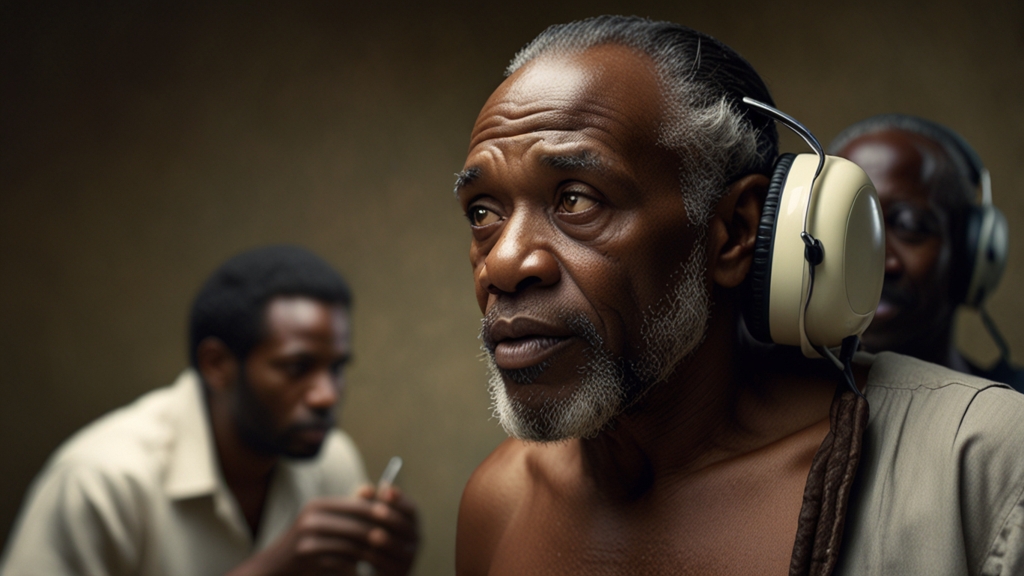Lost in the Jungle: The Harrowing Stories of POWs in Vietnam
The Vietnam War, a conflict that ravaged Southeast Asia from 1955 to 1975, left profound scars on all who were involved. Among the war's many tragic narratives, the ordeal of Prisoners of War (POWs) stands out for its sheer brutality and the indomitable human spirit displayed. Countless soldiers found themselves "lost in the jungle," enduring unimaginable hardships in the isolated POW camps of Vietnam.
The Unforgiving Jungle
The dense jungles of Vietnam provided a natural fortress for both the Viet Cong and the North Vietnamese Army. For captured American soldiers, these jungles became a living nightmare. The unforgiving terrain, with its oppressive heat, torrential rains, and swarming insects, added a layer of misery to their captivity that was nearly impossible to describe.
"The jungle was a green ocean of suffering," recalled Lt. John McCain, one of the most famous POWs of the Vietnam War. "Every day was a battle for survival against not just our captors, but also the suffocating wilderness that surrounded us."
Harsh Conditions and Brutal Treatment
The conditions in the POW camps were harsh, to say the least. Prisoners were often confined to small, makeshift cages, with barely enough room to sit up straight. Sanitary conditions were appalling, leading to rampant disease and infection. Food was scarce and nutritionally deficient, contributing to severe malnourishment.
The psychological torment was equally severe. Interrogations were frequent and brutal, often involving physical torture. Sleep deprivation, forced labor, and solitary confinement were common tactics employed by captors to break the spirits of the prisoners. Yet, despite these efforts, many POWs managed to preserve a semblance of hope and resilience.
"The real battle was not against the physical pain, but against the urge to give up hope," said Sgt. James Thompson, who spent seven years in captivity. "Every day, I reminded myself of my family, of the life I wanted to return to. That hope kept me going."
Acts of Resistance and Solidarity
Despite the harsh conditions, POWs found ways to resist their captors and maintain their morale. They devised creative methods to communicate, using taps on the walls or hidden notes to share information and keep each other's spirits up. These small acts of defiance and solidarity were crucial for their mental well-being.
Some prisoners risked severe punishment to document their experiences, hoping that these records would one day help to bring their captors to justice. Capt. Mike Haggard, for example, kept a secret diary, writing with a makeshift pen and ink made from bamboo and soot. His writings provided a vivid account of life in the camps and eventually contributed to broader historical understandings of the POW experience.
"Even in the darkest hours, we found ways to remind ourselves that we were still human, that we still had our dignity," noted Capt. Mike Haggard. "Our camaraderie was our shield against the isolation and despair."
The Road to Freedom
The eventual release of American POWs, following the signing of the Paris Peace Accords in 1973, was a moment of profound relief and triumph. The stories of their resilience and courage continue to serve as powerful reminders of the human capacity to endure and overcome even the most harrowing conditions.
Upon returning home, many former POWs faced additional challenges as they reintegrated into society. The scars of their captivity, both physical and emotional, lingered long after their release. However, their stories also inspired countless others and contributed to the broader narrative of sacrifice and heroism associated with the Vietnam War.
Conclusion
The stories of POWs in Vietnam stand as stark testimonies to the brutality of war and the resilience of the human spirit. Lost in the jungle, these soldiers faced unimaginable horrors, yet they persisted with courage and hope. Their experiences remind us of the deeper costs of conflict and the enduring strength of those who survive it. As history continues to unfold, their harrowing tales remain etched in our collective memory, urging us to honor their sacrifices and strive for a better, more peaceful world.










